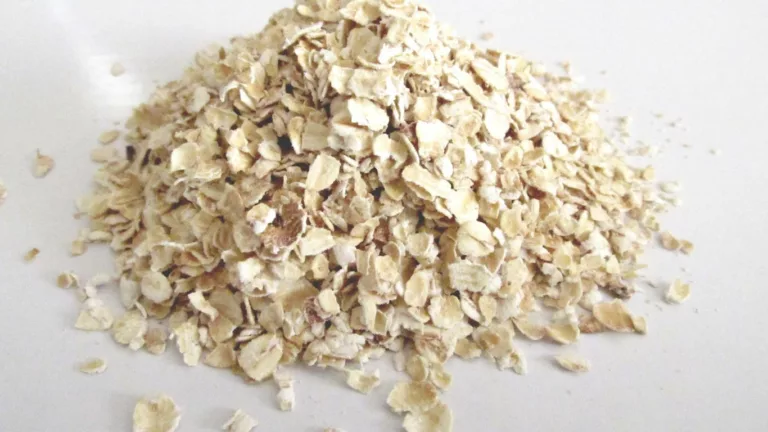Acid Reflux-Friendly Grilling Recipes: A Flavorful Guide
Learn how to enjoy grilled dishes without triggering acid reflux. These GERD-friendly grilling recipes are packed with flavor and tailored to keep heartburn at bay.

Understanding Acid Reflux and Grilled Foods
Acid reflux, or GERD, occurs when stomach acid flows back into the esophagus, causing discomfort or heartburn. While grilling is a favorite cooking method, certain ingredients and techniques can trigger reflux symptoms. But don’t worry—you can still enjoy a barbecue without regret. It’s all about making smart choices and swapping out heartburn-inducing foods for GERD-friendly options.
Best Grilling Ingredients for Acid Reflux

Let’s break down some reflux-safe ingredients you can throw on the grill:
Lean Proteins
Skip the greasy burgers and fatty sausages. Opt for lean cuts of chicken, turkey, or fish like salmon or cod. These are lower in fat, making them gentler on your stomach.
Non-Acidic Veggies
Grill up veggies like zucchini, bell peppers, asparagus, or carrots. Avoid tomatoes or onions, which can often exacerbate symptoms.
Whole Grains
Swap out white bread buns for whole-grain alternatives. They’re easier on your digestive system and pair well with grilled proteins and veggies.
Acid Reflux-Friendly Grilling Tips

Use Marinades Wisely
Skip acidic marinades made with citrus or vinegar. Instead, go for GERD-friendly options like olive oil, fresh herbs, and a splash of low-sodium soy sauce.
Portion Control
Keep your portions moderate. Overeating, even GERD-friendly foods, can trigger symptoms. Stick to small, manageable servings.
Avoid Spicy Rubs
Spicy seasonings can be a big no-no for acid reflux. Choose mild herbs like basil, oregano, or parsley to season your food.
Stay Upright After Eating
Sit upright for at least two hours after your meal. This helps prevent stomach acid from creeping back up.
Top 3 Acid Reflux-Friendly Grilling Recipes

1. Herb-Grilled Chicken
Ingredients: Chicken breasts, olive oil, fresh rosemary, thyme, garlic powder, salt, and pepper.
Instructions: Brush the chicken with olive oil, season with herbs, and grill until cooked through. Serve with grilled zucchini or asparagus.
2. Grilled Salmon with Dill
Ingredients: Salmon fillets, olive oil, fresh dill, lemon zest, salt, and pepper.
Instructions: Coat the salmon in olive oil, sprinkle with dill and lemon zest, and grill until flaky. Pair with a side of grilled carrots.
3. Vegetable Skewers
Ingredients: Bell peppers, zucchini, mushrooms, olive oil, garlic powder, salt, and pepper.
Instructions: Toss veggies in olive oil and season with garlic powder. Thread onto skewers and grill until tender.
Conclusion
With the right approach, you can enjoy grilled dishes without worrying about acid reflux. By choosing lean proteins, non-acidic veggies, and mild seasonings, you’ll keep the flavor high and the heartburn low. Remember to portion your meals and follow GERD-friendly practices for a stress-free barbecue experience.
Appendices
FAQs
- Can I use BBQ sauce on acid reflux-friendly recipes? Traditional BBQ sauces often contain acidic ingredients like vinegar. Opt for a GERD-friendly homemade sauce instead.
- Are grilled fruits safe for acid reflux? Stick to non-citrus fruits like peaches or bananas, which are less likely to trigger symptoms.
- What’s the best way to season food for acid reflux? Use fresh herbs, mild spices, and olive oil for a safe and flavorful meal.
- Is charcoal or gas grilling better for GERD? Both are fine; just avoid charring your food, as it can irritate the digestive system.
- How can I make grilled dishes moist without citrus? Olive oil, low-sodium broth, or yogurt-based marinades work great for keeping food juicy.
References
- American Gastroenterological Association. (2024). GERD-Friendly Cooking Tips. Read Article
- Jones, P., & Taylor, S. (2023). Managing Acid Reflux Through Diet. Journal of Digestive Health, 29(3), 200-215. Read Article
- National Institutes of Health. (2024). Heartburn-Free Grilling. Read Article
Disclaimer: This content is for informational purposes only and is not a substitute for medical advice. Consult a healthcare professional for personalized guidance on managing acid reflux or GERD.

Dr. Gwenna Aazee is a board-certified Internal Medicine Physician with a special focus on hypertension management, chronic disease prevention, and patient education. With years of experience in both clinical practice and medical writing, she’s passionate about turning evidence-based medicine into accessible, actionable advice. Through her work at Healthusias.com, Dr. Aazee empowers readers to take charge of their health with confidence and clarity. Off the clock, she enjoys deep dives into nutrition research, long walks with her rescue pup, and simplifying medical jargon one article at a time.







